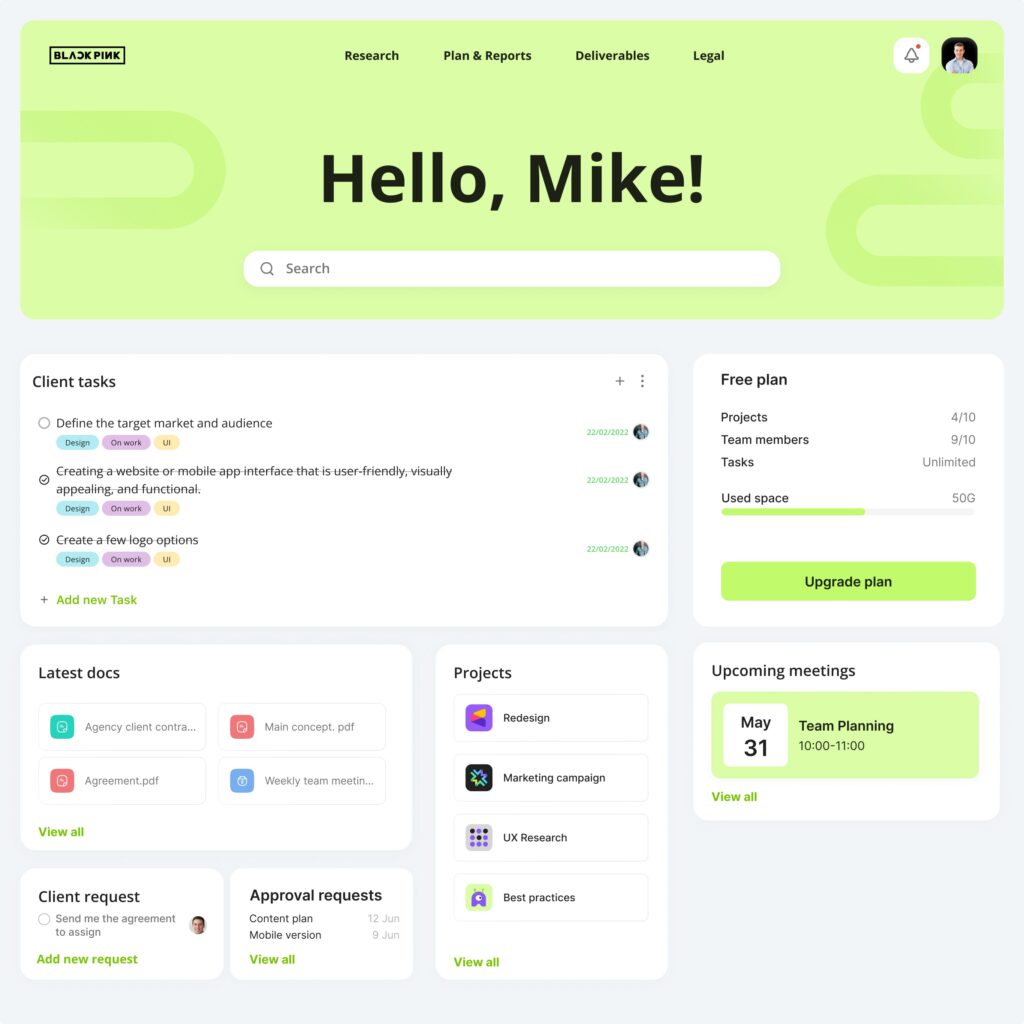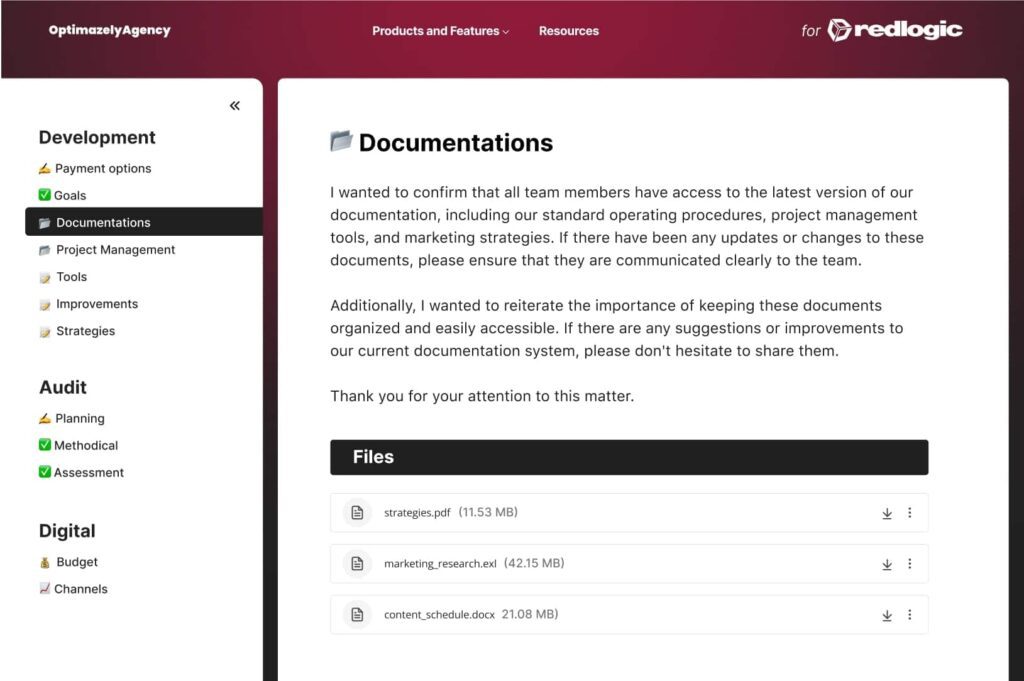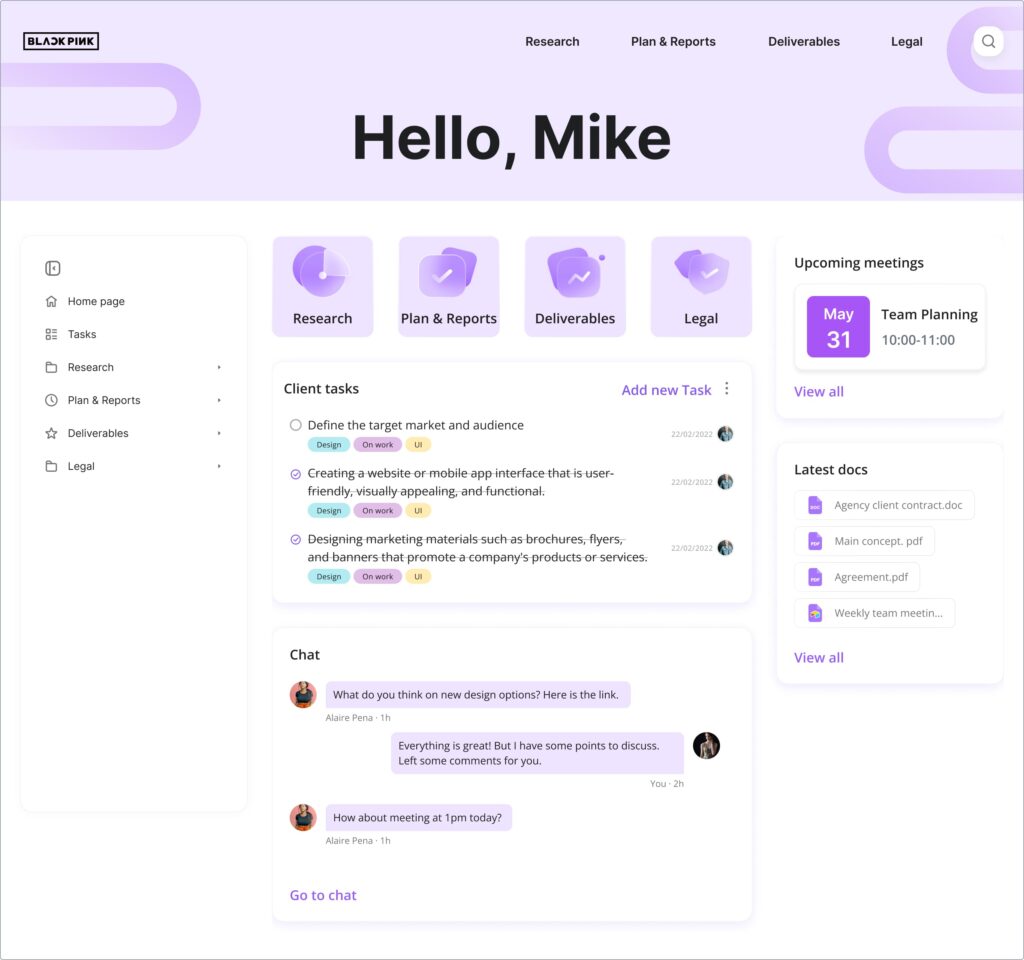
Why a Client Portal is Essential for Your Business Success
- 7 Min read
Since the beginning of the digital era, the amount of data we produce has been growing constantly and exponentially. According to SG Analytics, every single day, people generate 2.5 quintillion bytes of data. Every report or database entry, every web page update, or a new tool description adds to this tremendous and unwieldy volume of data. Working businesses produce and process tons of data, all of which must be structured and stored for easy retrieval. Software developers create tools to help keep this ever-growing mass of data in order and at hand. Recently, many tools have come under the umbrella of business portals. So what is a business portal?

A business portal, sometimes referred to as a corporate or enterprise portal, is a web-based platform that brings together all of a company’s stakeholders, from employees and managers to partners and customers. Such platforms host and facilitate all aspects of a company’s activity. Document management and project management, staff support and customer relations, data analysis, communication, and collaboration – all these indispensable parts of any business are gathered into one central hub, a business portal.
While the main purpose of a business portal is to provide a centralized web platform for each person involved in a business, there are a few specific needs it is called to meet:
A knowledge database or an interactive handbook, which may be a part of your business portal, saves time for everyone involved in your business processes. Customers may receive answers to their questions without having to contact helpdesk employees, while employees get clear instructions about systems and workflows. A CRM (customer relationship management software) allows your staff to personalize customer interaction and thus increase customer loyalty and, in the end, your sales. By granting different access rights, you can guarantee each stakeholder has all the information they need – and only the information they need.
Business portals can automate many elements of your workflow, for example, task assignments, approvals, data entry, data exchange through integrated applications, and reporting and analytics. Employees get dashboards that streamline routine tasks, track task completion, and create reports quickly and easily, while self-service portals enable customers to place and track their orders.
By providing communication tools and shared resources, a corporate web portal enables all stakeholders to connect easily across multiple channels, including their mobile devices. Employees can share information, brainstorm, and collaborate on projects, while customers can get updates and recommendations and manage their orders. Meanwhile, suppliers and partners can receive performance metrics and see product information, pricing, and delivery schedules. Some portals include gamification techniques, providing rewards, and motivating stakeholders to participate. The collaboration tools that a business portal provides contribute to stakeholder engagement and overall satisfaction when dealing with your business.
Some of these objectives are met with a client portal. However, a business portal differs in the audience, content, and tasks solved. In addition to engaging and informing external stakeholders, a business portal caters to internal stakeholders, like employees and suppliers.
According to Forbes, easy messaging about new opportunities, personalization, conversational assistants or chatbots, and omnichannel capabilities are among the top must-have features of a competitive business website – and they are exactly what business web portals ensure. There are also many more features that a corporate web portal can offer your business, which depends greatly on the industry and the specific needs of a business, but the main ones are:
Collaboration tools: instant messaging, chatbots, shared calendars and scheduling, software for video conferencing, and interactive digital whiteboards.

Let’s compare a business portal for a small retailer with a portal for a large production company. Each player needs a set of features to support their core business functions. For a small retail company, a business portal may include a product catalog, a CRM tool, inventory management, order management (possibly, with self-service options), payment processing, a reporting dashboard, and marketing and promotion tools to run targeted advertising campaigns. A major production company will, on the other hand, benefit from adding tools for supply chain management, asset and finance management, for monitoring production processes, quality control, and business intelligence. The feature set a specific company’s web portal should include varies depending on the complexity of its business processes.
Business portals may be of a few different kinds, aiming at different categories of stakeholders:
Based on the focus, audience, and content, it’s possible to differentiate between vertical portals and horizontal portals. Vertical portals are industry-specific and serve a certain niche or industry. They are limited to professionals within this industry and contain news, research, and solutions that may be too deep for a broader audience. Horizontal business portals, on the other hand, are not as restricted and cater to a broader audience and provide resources and services that can be used across a whole range of industries without being too tailored.
Properly set up web portals bring companies a lot of advantages:
1. Improved communication and collaboration across the company departments, as well as with external users, for higher productivity and deeper engagement.

2. Increased efficiency through streamlining and automating business processes and systems, structuring data in a logical way, eliminating the human factor from routine tasks, thus saving money and enabling firms to stay within a project budget, ensuring a good return on investment.
3. Better decision-making, which becomes possible thanks to real-time analytics technology, reporting and forecasting.
4. Higher security is provided with access controls, encryption, and other data protection features.
5. Enhanced user experience and support, where a business portal can provide customers with access to up-to-date information on the company’s products and services and maintain good customer relationships without getting tired or needing vacation days while making feedback collection and processing easy and timely.
Despite the indisputable advantages of business portals, there are a few challenges you may face when choosing and implementing your own web portal:
There are dozens of business portal platforms available, from giants like the Zoho Office Suite or Microsoft Dynamics 365 product lines, to the smaller but no less worthwhile FuseBase or Liferay. Picking the one that fits your business, offers an easy-to-use interface, and saves your time and money may be tricky.
While the ability to customize the portal to suit your business needs is definitely a plus, actually doing it may be time-consuming. Maintenance and support may require specialized skills and technology expertise, including front-end software development.
A business portal is intended to integrate with other applications and software businesses are using, but ensuring all the right integrations and making them seamless may be an additional pain, especially if additional hardware is needed to create the proper gateway.
Business portals normally provide robust security features, but your staff need training, both on compliance with GDPR (General Data Protection Regulation) and on handling sensitive user data on your site and all portal pages.
All users – employees, customers and partners – must be encouraged to use your portal, which they may resist if they are accustomed to other systems.
According to a report by MarketsandMarkets, the global market for business portals is growing – from $7.3 bln in 2018 to $9.8 bln in 2023 and is expected to keep growing to up to $30.12 bln by 2030, with CAGR (Compound Annual Growth Rate) of 12.14%. This means companies worldwide understand the advantages a business portal offers.
You now know the answer to the question of “What is a business portal?” but are still unsure of whether such web gateway can benefit your business? Try one in action. FuseBase provides powerful tools for seamless and effective collaboration between all of your stakeholders. Client portals, knowledge bases, shared documents and services, intranets, and project management – all the vital instruments and technology can become the very engine that will drive your business forward!
Achieve successful business results with FuseBase!
Visit our Twitter page for more articles and updates!
Found it useful? Share the article with your community
Get weekly tips and insights on how to grow your business